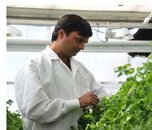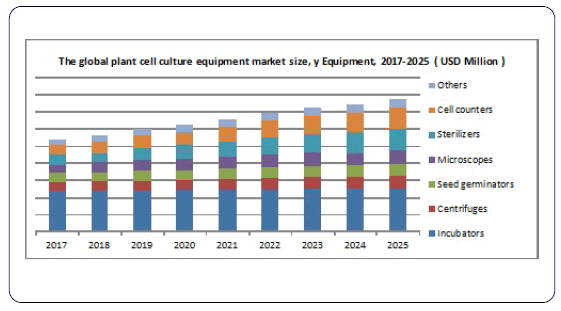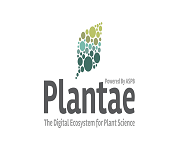Sessions/Tracks
Plant breeding is concerned with developing varieties superior to existing ones. It can be defined as a science, an art and a
technology which deals with
genetic improvement of crop plants in relation to their economic use for mankind. In earlier days the extent of
plant breeding as an art and as a science was much disputed Early Ln was a nomad and dependent for his food on the forest products.
The complex and different responses of plants to nanoparticles, the signal transduction mechanisms involved, and the regulation of DNA expression
. Nanoparticles have received much response because of the unique
physio-chemical properties of these compounds. Nanotechnology also play an important role in agriculture as compound fertilizers and
minute-pesticides, acting as chemical delivery agents that target molecules to specific cellular organelles in plants.
Plant Proteomics is concerned with the entire complement of proteins of plants including the modifications made to a particular set of proteins.
Proteomics is an in depth study of a specific proteome, including information on protein and its modifications and variations. Proteomics works with the
interacting partners and members associated with it in a
sequential network.
Plant Sciences is the study of plant growth, reproduction, evolution, and adaptation, as well as the use of plants for food, fiber, and
ornamental purposes. Plant Sciences students gain the expertise necessary to
advance research in and address many local, regional, and global challenges.
Plant signaling is the ability of plants to sense and respond to the environment to adjust their morphology, physiology and phenotype accordingly. Other
subdivisions such as plant physiology, ecology and molecular biology are utilized to analyze the abilities of the plant. Plants react to chemicals, gravity, light, moisture, infections, temperature, oxygen and carbon dioxide concentrations, parasite infestation, disease, physical disruption, sound and touch.
Plant Pathology is defined as the study of diseases in plant that cause by the pathogens, the mechanisms by which this occurs, the interactions between these causal agents and the plant and the methods of managing or controlling plant disease. It also interfaces knowledge from other scientific fields such as
mycology, microbiology, virology, biochemistry,
bio-informatics, etc. Plant Diseases caused by plant pathogens like fungi, bacteria, nematodes, viruses, parasitic flowering plants,
abiotic factors of the environment including light, temperature, and atmospheric gases.
Biochemistry of plants basically deals with the molecular mechanisms or pathways that are carried out in a plant cell. It involves photosynthesis, respiration and other
metabolic pathways. It deals with food formation,
translocation from source to sink, all comes under plant biochemistry. All the essential metabolic pathways in a plant cell are based upon interaction between
biological and chemical molecules in a cell.
Physiology has been defined as ‘the science of the normal functions and phenomena of living things’. From the foregoing,
plant physiology can be described as that aspect of study that deals with the functioning of plants both microscopically and
macroscopically. Plants cells have cell walls that are rigid and thus restrict their shape as opposed to animal cells that have both cell walls and cell membranes.
Crop improvement refers to the genetic alteration of plants to satisfy human needs. In prehistory, human forebears in various parts of the world brought into
cultivation a few hundred species from the hundreds of thousands available. In the process they transformed elements of these species into crops though genetic alterations that involved conscious and
unconscious selection, the differential reproduction of variants. Through a long history of trial and error, a relatively few plant species have become the
mainstay of agriculture and thus the world's food supply.
Plant viruses are wide spread and economically important plant pathogens. The morphology, genome structure, reproduction strategy of different types of plant viruses, which together form the basis of virus classification. Plant viruses consist of a
nucleoprotein in that multiplies only in the living cells of a host .The presence of viruses in host cells often results in disease, 400 or more viruses are known to attack plants.
Viruses are generally specific, what infects
aqueous plant does not cause disease in animal.
Plant cells can be grown in isolation from intact plants in tissue culture systems. The cells have the characteristics of
callus cells, rather than other plant cell types. These are the cells that appear on cut surfaces when a plant is wounded and which gradually cover and seal the damaged area .Tissue culture cells generally lack the distinctive features of most plant cells. Plant tissue cultures can be initiated from almost any part of a plant. The physiological state of the plant does have an influence on its response to attempts to initiate tissue culture. The source
, termed explant, may be dictated by the reason for carrying out the tissue culture. Some of societies associated with Plant Tissue Culture includes, Different types of plants
garden plants, evergreen plants, house plants, shade plants.
Plant Genomics researchers have readily embraced new algorithms, technologies and approaches to generate genome,
transcriptgenome and epigenome datasets for model and crop species that have permitted deep inferences into plant biology. When a species’ reference genome is available,
whole-genome resequencing is an efficient approach for discovering genes, SNPs, and structural variants, while simultaneously determining genotypes. Information from these studies will fill in the gaps that exist in the
genetic maps of many plant species, improving plant breeding and selection, and enabling definitive comparative genomic analyses within and across species and few associations includes
Seed genomics, from fundamental seed science to handy applications in
harvest science, gives a careful foundation comprehension of seed science from an essential science viewpoint. The field to cover three general subjects
genomic ways to deal with considering seeds, genomic examination of fundamental
seed science, and product seed genomics. From essential
seed science to down to earth applications in product science, gives a careful
foundation comprehension of seed science from a fundamental science point of view
Botany is the science of plant life and a branch of biology that deals with the study of plants. Plants are a wide range of living organisms from the tiniest organisms to the
mammoth living organisms. In general terms plants include algae, fungi, lichens, mosses, ferns, conifers and flowering plants. Botany is the scientific discipline that works on observation,
experimentation, recording,
classification, and the testing of hypotheses, in a methodological manner.
Market Analysis
Importance and scope:
Plant genomics is a mounting and constantly evolving field of study, one which has gained much ground in past years through the development of advanced research and data management tools. Expert researchers explore the current issues and methodologies of this expanding field, specifically addressing areas of gene discovery and the functional analysis of genes with a target on the primary tools and sub-disciplines of genetic mapping, mRNA, protein and metabolite profiling. Plant genomics employ exciting new methods to investigate molecular plant breeding technology and gene functional analysis via transformation, mutation, protein function, and gene expression. The success of transgenic crops has erased the last vestiges of doubt about the value of agricultural biotechnology and triggered large-scale investments in plant genomics. The first genomics technology that was practiced on a large scale was sequencing the 5′ ends of cDNAs, to produce expressed sequence tags (ESTs).
Plant Genomics has roots in agriculture and Plant Genomics also has scope in agriculture fields, medicine, food production and textiles. It is the main source of food for human being. As well as we can get plant proteins, phytochemicals from plants, from medicinal plants some medicines are prepared, and which can cure some fatal diseases. Form some recent study it is proved that plant antioxidant helps us to protect from free radical damage. By using Phytochemicals some cancer cell proliferation can be prevented at earlier stage. Beside that we can increase the nutrition value of plant by plant biotechnology and plant breeding. Now days green energy is used as non-conventional source of energy to reduce environmental pollution. So, in human life Plant Genomics and plant-oriented studies are very much important to sustain in this planet.
Value of Plant genomics to Agriculture and Society:
Genomics will accelerate the application of gene technology to agriculture. this technology will enhance food security, by increasing productivity, and food safety, by eliminating Mycotoxins. There is a third benefit, derived from the first two: increased wealth. By accelerating the application of technology, genomics significantly increases the value of seeds and agricultural products. This increase adds much wealth to the customers, company owners, employees, and citizens of the nations in which genetic supply companies operate, and to both producing and importing nations whose food costs consequently are decreased.
Agricultural plant genomics should be publicly funded for several reasons. First, the DNA sequence of plants is necessary for continued low-cost, rapid progress to understand crops. As such, it is an essential resource for scientists in both the public and private sectors. Second, industry needs the public sector to create innovative methods for structuring and analyzing databases, which can’t be done without access to genomics resources. Third, genomics is an equalizer in the research world.


















